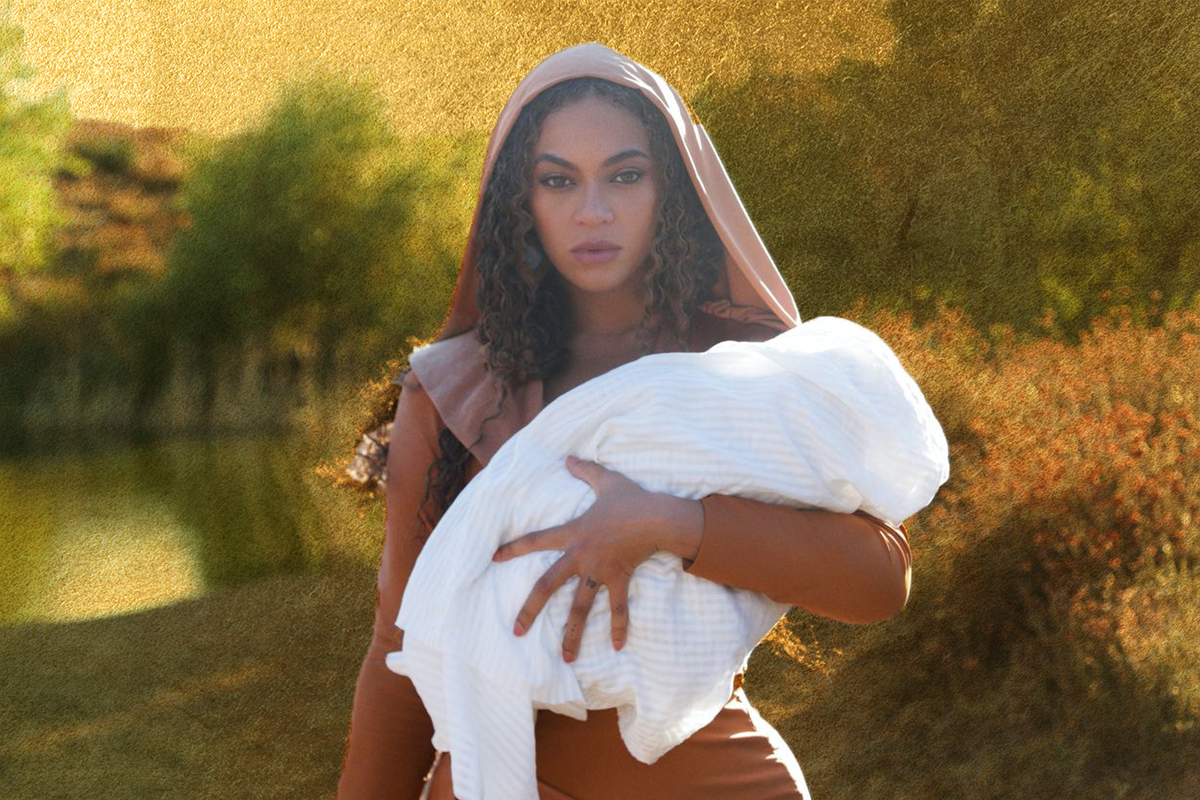Our first time in Paris, unsure of what to do after a late lunch, my husband and I shrugged our shoulders and set out for a walk. We took a left from L’ays du Fallafel and peered into shop windows as we strolled on the quiet street. At the corner, a group of men in yarmulkes hurried past us into a synagogue, as a gray-haired man gestured to my husband.
Ever the polite Midwestern boy, my husband Paul left me to continue window shopping while he had a brief conversation with the older man.
“What was that about?” I asked when he returned to my side.
“Eh, he asked if I was there for the meeting,” Paul shrugged. “In French.”
After Paul told him that he wasn’t French, the man switched to English and asked if he was Jewish.
“I said no, and do you know what he said?” Paul asked me after the fact. “The guy looked at me and said, ‘May God bless you anyway.’ He wanted to look after me, someone he literally just met.”
I think about that afternoon in France often. About — to paraphrase Tennessee Williams — the kinship of strangers, the willingness to extend the familial bond to someone you’ll likely never see again.
It’s what I was thinking about when watching Beyoncé’s latest musical film/visual album, Black is King, which takes imagery from both The Lion King and the story of Moses to create a compelling allegory about the African diaspora. As a Black Jewish woman watching the film, I was most taken with the bonds — both familial and adversarial — that Black Is King illustrates.
Black Is King delivers itself to viewers in the form of a basket drifting along the Nile River, similar to the biblical figure Moses. As anyone with children knows: A baby is never just a baby. A baby is not just a beginning; a baby holds promise and continuation.

Moses, cast out of his home as a baby, found a brotherhood in the desert. I learned about my own place in the Jewish peoplehood as an afterthought — a brief aside to a dinner conversation.
“You know, your grandparents converted right before your mom was born,” my uncle Reggie told me. “Now pass me the pepper. Your Nana can’t season collards for shit.”
“Wait. What?”
“Child, you didn’t know that? Pass me the salt, too.”
“Doesn’t that mean I’m Jewish, too? Isn’t that how it works?”
“Hell, I don’t know. Gimme the butter for my bread.”
And that’s the story about how, when I was 8, I found out I am Jewish. Maybe… probably… definitely… depending on who you ask in my family. My grandfather was always open about his conversion; my grandmother, not so much.
Yet even I, a wayward daughter, recognized when Beyoncé raised her glass of milk in Black Is King, welcoming the young Moses figure to the land of milk and honey.
In the Torah, God speaks to Moses through a burning bush. In Black is King, we receive our wisdom from women. The songs “Brown Skin Girl” and “Otherside” serve as benchmarks of Black womanhood. From the visuals of innocent young Black girls at play, to the confident gaze of Naomi Campbell interwoven with Black debutantes, “Brown Skin Girl” is a true coming out to society song.
On the flip side of that Black joy is Black heartbreak and pain. “Otherside” plays while Beyoncé places the baby in a basket in the river — just as Moses’ mother, Jochebed, did — while tears fall down her face. It conjures up the loss of Trayvon Martin, only 17 years old when he was killed. Of George Floyd, killed this past May, whose last words were, heartbreakingly, calling out, “Mama.”
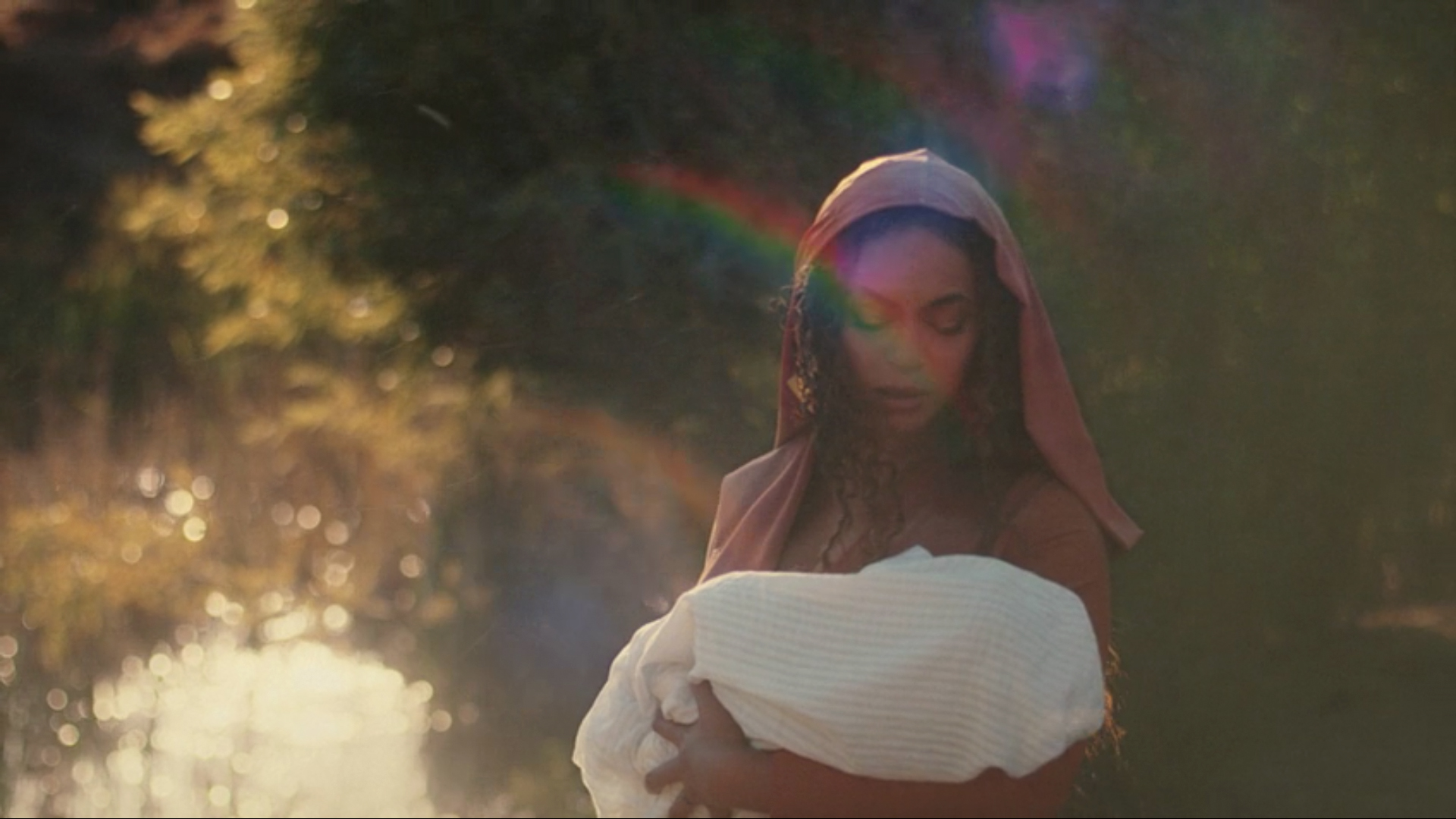
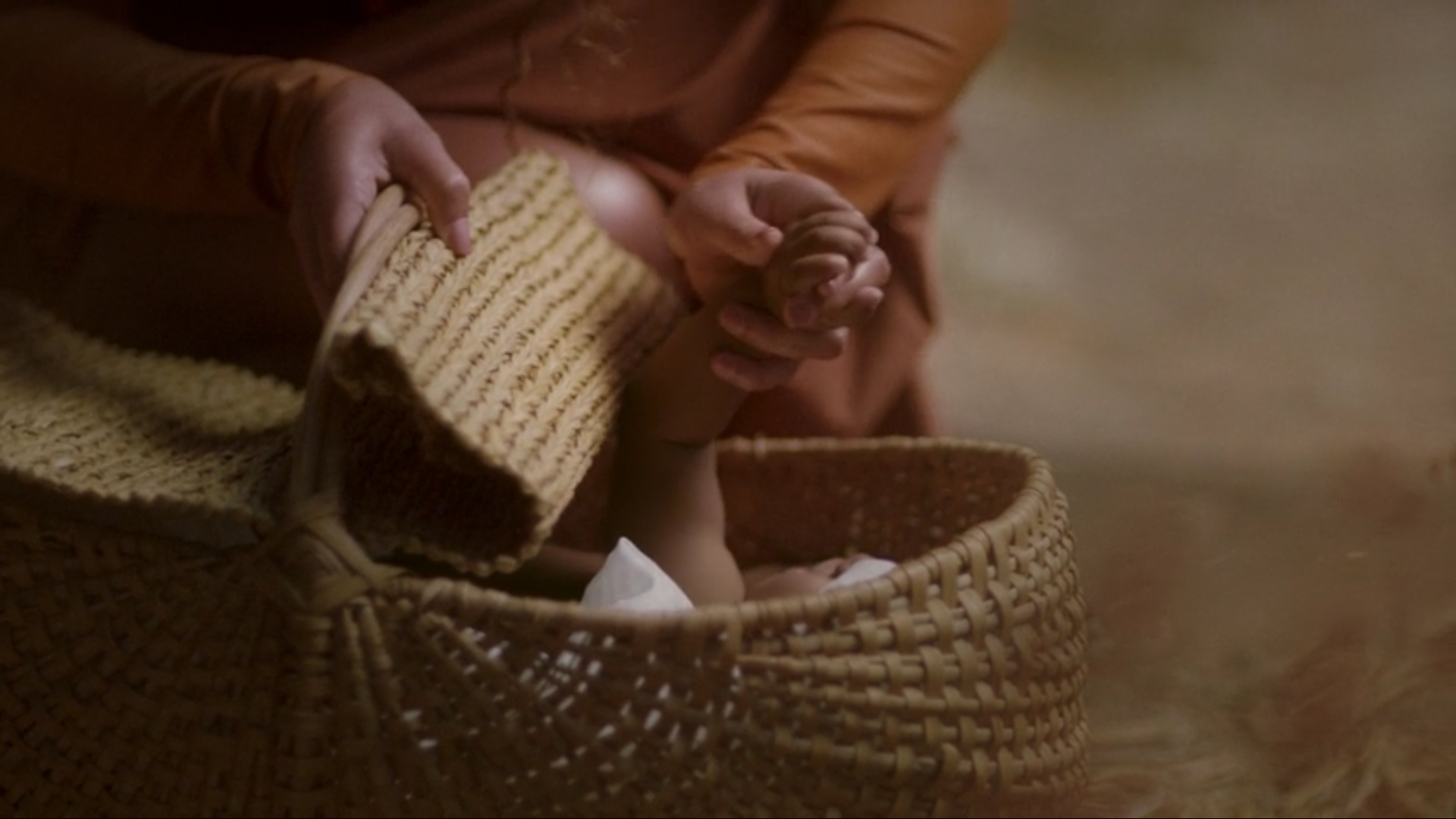
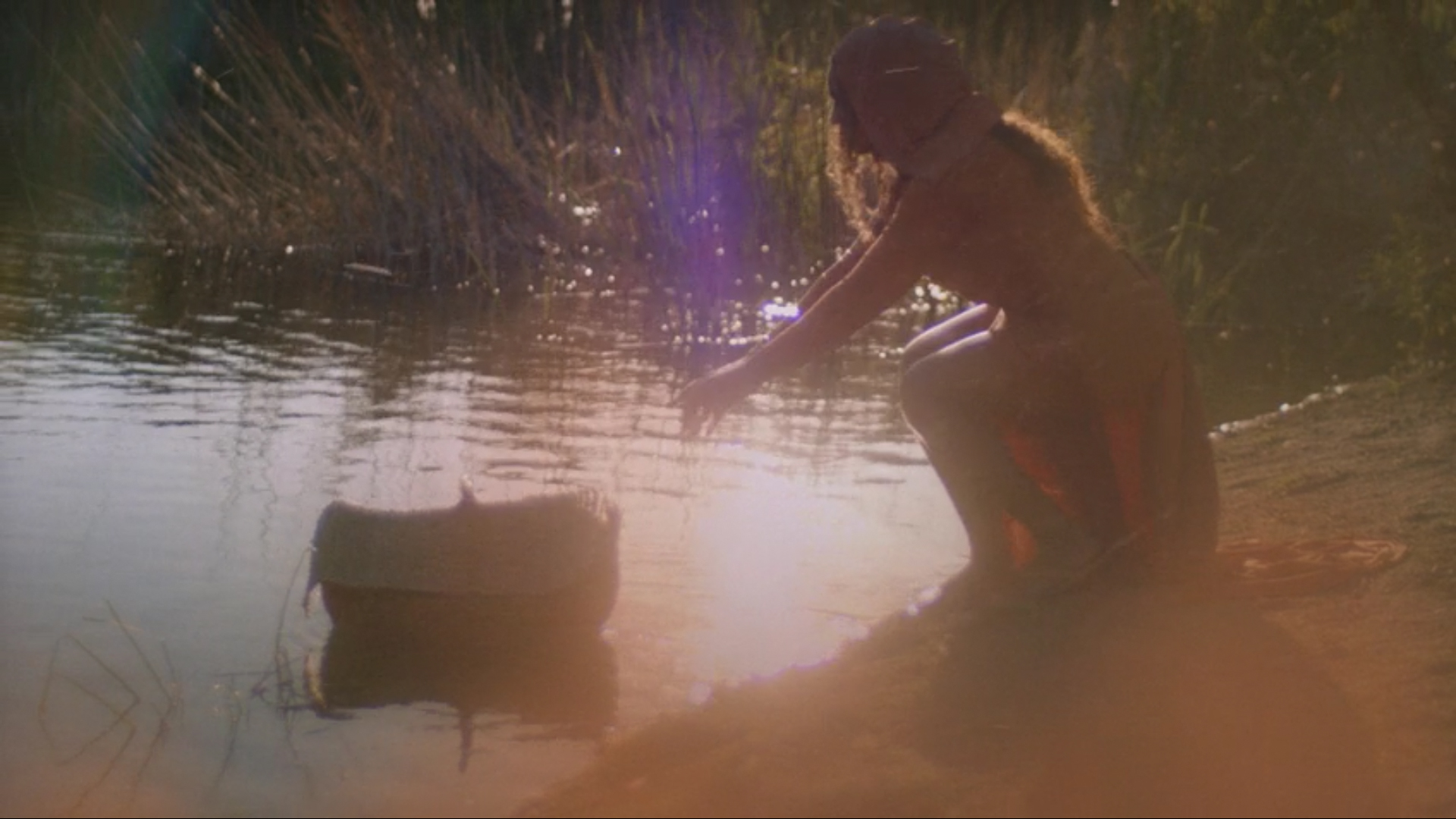
“Otherside,” too, conjures up the plight of Latina mothers, fleeing unimaginable hardship in their own lands, who have their own babies taken from their arms and placed in cages, or, as the current administration would call them, “temporary juvenile detention centers.” The quiet emotion of “Otherside” is almost too hard to watch amidst the splendor that is the rest of Black Is King.
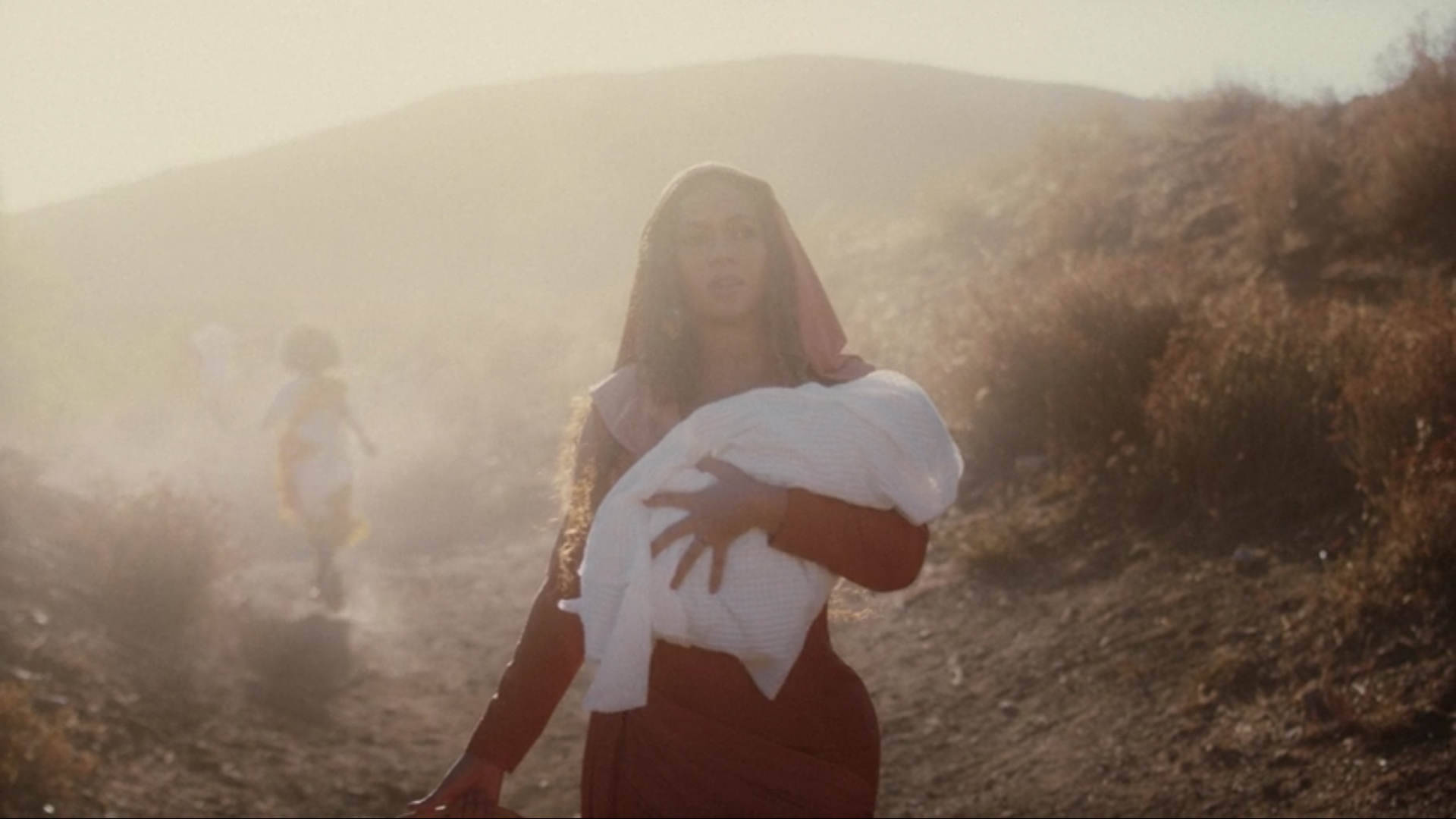
But I did watch. And as I watched, I couldn’t help but think of the rarely quoted line from the spiritual “Go Down Moses”: “Oppressed so hard, they could not stand.” Every Black child in America, including myself, has their version of what I like to call “The Slavery Lesson.” It’s the class, usually in elementary school, where we learned about the Civil War and the antebellum years. I remember squirming in my seat as all eyes turned to me, one of the only Black students in class, as the teacher talked about human bondage. It’s the lesson where I learned about being different.
When I went home from school that day, I cried as I told my mother about the embarrassing lesson. I don’t remember the exact words she used, but as Beyonce sings in “My Power,” right after “Otherside,” I can remember the passionate way she tried to lift me up. Joy and pain — always intertwined.
In a spoken-word interlude in “Otherside,” Beyoncé narrates the words of Somali-British poet Warshan Shire: “Salutations to survivors of the world, the elders are tired. To God we belong, to God we return. You find yourself in a room with all the people you lost and you dance with joy.”
Then, we see young children discovering the basket containing baby Moses, as an ethereal Beyoncé looks on.
We see the reflection of Beyoncé lift the basket from the water, as she sings “Mababu Katika Mawingu” on repeat, a Kiswahili phrase that translates to “Grandfathers among the clouds.” This is, of course, a reference to The Lion King, but also to Moses, our prophet who led us to the Promised Land.
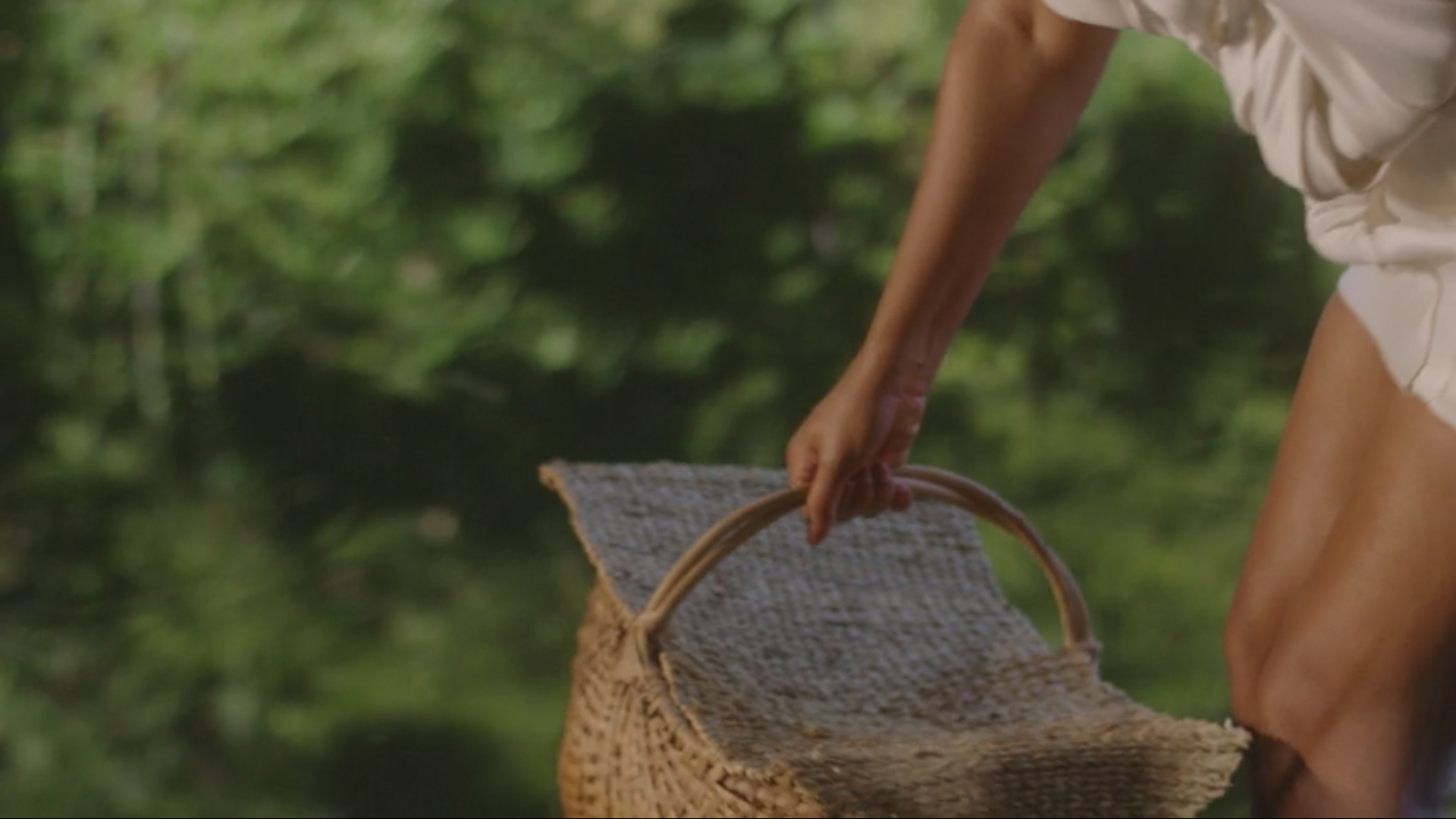
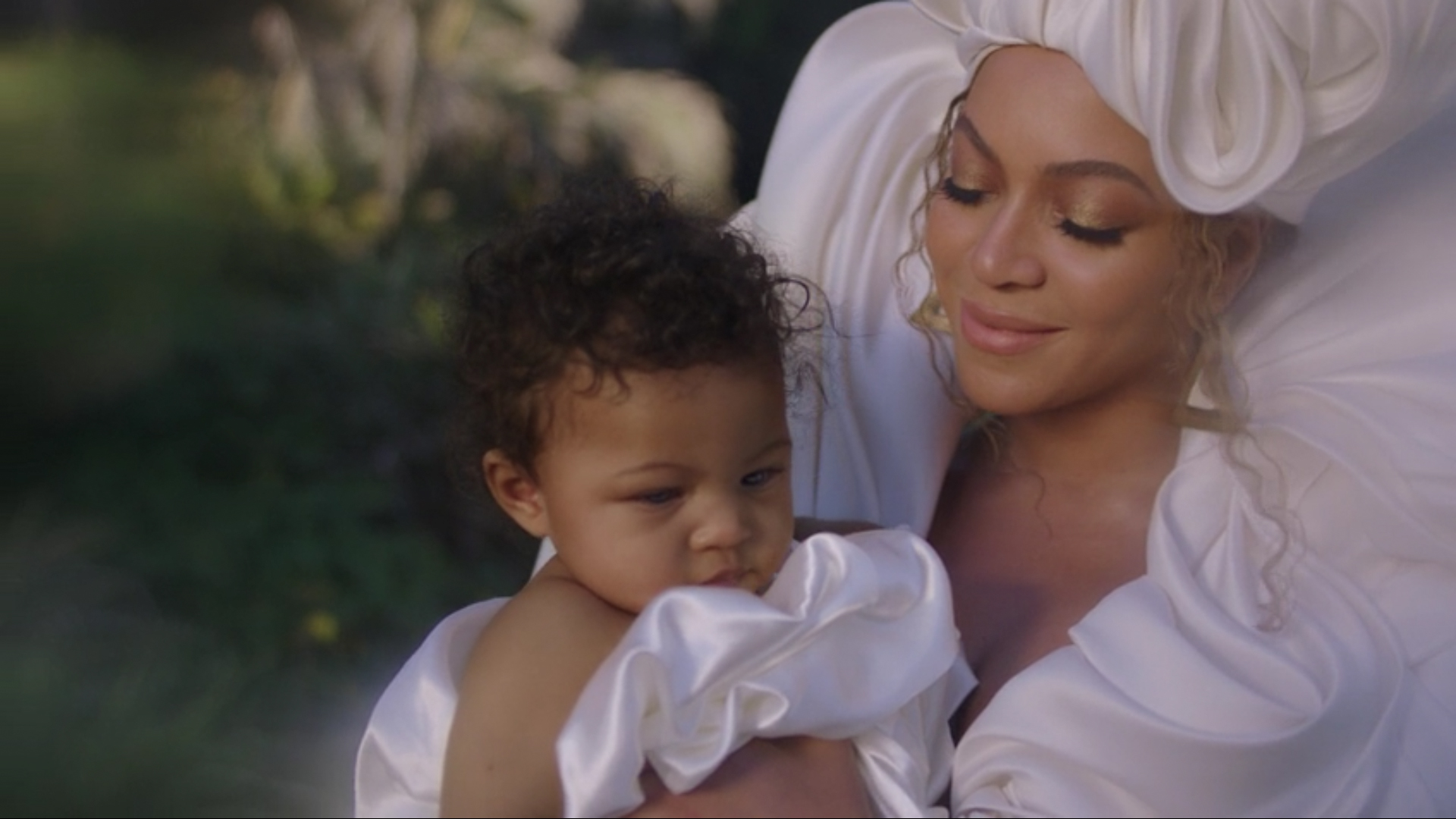
I think of my own grandfather. My grandparents’ love story was non-traditional. They were together, then they weren’t. Nana married someone else, my beloved PopPop. Grandpa moved in with another woman. After 25+ years, PopPop died, and Grandpa and Nana got back together.
Once, when visiting their apartment in Brooklyn when I was 14, I pointed to his mezuzah on the doorframe.
“What’s that?”
“It’s a mezuzah.”
“What’s it for?”
“It’s a Jewish thing.”
“Yeah, but what’s it for?” I asked.
“I guess you can say it’s to remind me of who I am. What I stand for.”
“Shouldn’t it be bigger, then?”
“It’s big enough for me, smart mouth.”
A mezuzah. A grandfather in the clouds. The wisdom of mothers who have given — and lost — so much. These are the bonds that hold us together as strangers, families, and everything in between.
All screenshots of Black Is King via Disney+. Header image Robin Harper.
